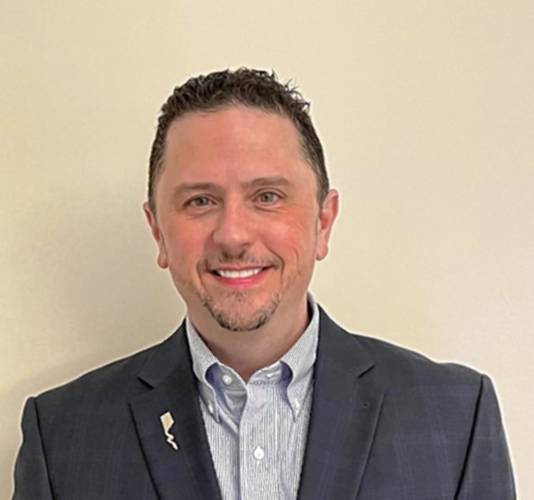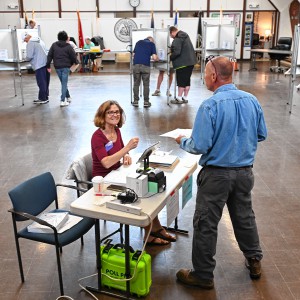My Turn: New beds just part of mental health safety net

Matt Stone CONTRIBUTED
| Published: 09-06-2023 8:52 PM |
Recently, elected officials and providers cut the ribbon for Valley Springs Behavioral Health Hospital in Holyoke, which added 150 inpatient psychiatric beds for the region, including spots for children with mental health problems. This new facility is wonderful news for the community, but as beds become available it is critically important that providers and families do not lose sight of in-home care options that have proved to be effective for hundreds of Massachusetts youths.
The COVID-19 pandemic profoundly impacted our young people, who were exposed to isolation and limited socialization coupled with increased social media usage. This caused an uptick in reports of anxiety, depression, and suicidal ideation and attempts.
An alarming number of caretakers were racing to emergency departments as a last resort, fearful their child could hurt themselves or others. This crisis reached a tipping point in March 2022, and almost 250 children per day were waiting in emergency departments for days or weeks.
The Massachusetts Department of Mental Health used different providers to create in-home care solutions to help reduce emergency department volumes. Families were enrolled to in-home services delivered by social workers to put kids on an effective treatment path. Since 2021, our statewide program alone has served nearly 400 youth from 22 hospitals, including Baystate Medical Center.
While every child’s needs are unique and must be evaluated by a medical provider, there are three reasons in-home services should remain an option for youth mental health treatment.
First, in-home mental health services allow children to remain in a stable environment with their families, enrolled in school and following an age-appropriate routine. This approach is effective because social workers can manage behaviors for specific incidents. For example, if a child has a violent outburst at school because they do not have enough time to complete an assignment, this trigger can be addressed.
Second, in-home mental health services are more sustainable than inpatient treatment for families. When a child is receiving care at home, social workers work with the family to create a healthier environment and teach caretakers how to manage triggers. This prevents hospital readmissions and can break the cycle for children struggling with mental health issues.
In-home services have a proven track record of success. Approximately 72% of youths served in our program have reported no suicidal ideation or attempts, self-harming behavior, or psychiatric hospitalizations during in-home treatment. Furthermore, 95% of youths completed services without needing a bed in an inpatient or residential placement.
Article continues after...
Yesterday's Most Read Articles
 Serious barn fire averted due to quick response in Shelburne
Serious barn fire averted due to quick response in Shelburne
 Bridge of Flowers in Shelburne Falls to open on plant sale day, May 11
Bridge of Flowers in Shelburne Falls to open on plant sale day, May 11
 Political newcomer defeats Shores Ness for Deerfield Selectboard seat
Political newcomer defeats Shores Ness for Deerfield Selectboard seat
 Roundup: Pioneer baseball wins Suburban League West title following 2-0 win over Hopkins
Roundup: Pioneer baseball wins Suburban League West title following 2-0 win over Hopkins
 As I See It: Between Israel and Palestine: Which side should we be on, and why?
As I See It: Between Israel and Palestine: Which side should we be on, and why?
 Employee pay, real estate top Erving Town Meeting warrant
Employee pay, real estate top Erving Town Meeting warrant
Finally, there are significant cost savings for the state to fund in-home services. The commonwealth pays approximately $135 per day over the average course of care. This includes three in-home counseling sessions per week for three months. Comparatively, it can cost over $5,000 per day for pediatric boarding in an emergency department. Inpatient care is also costly, and oftentimes kids are discharged early due to limited insurance coverage or because they no longer qualify for higher-level care. This can be disruptive and result in hospital readmissions.
To be sure, inpatient services are essential and must be available for western Mass youths that meet specific criteria. Mark Keroack, the president and CEO of Baystate Health, got it right when he said this new hospital would reduce the likelihood that patients needing care would be transferred outside the region. The opening of Valley Springs is a step in the right direction to expand the bed count for the region, but based on the evidence, it is not a silver bullet for addressing the youth mental health crisis.
As services ramp up, providers, caretakers, and teachers must be aware of the different options that exist for in-home and inpatient mental health treatment. Parents should be encouraged to ask questions about available options for children and the medical community should maintain a productive dialogue with families to explain options.
Over three years since the pandemic began, problems remain for youth. Recently, the American Academy of Pediatrics, the American College of Emergency Physicians and the Emergency Nurses Association called on local communities to increase access to mental health services before emergency care is needed.
In Massachusetts, we must continue to lead the way on this crisis. Our state is proud to be home to the nation’s best and most innovative health care options. When it comes to the youth mental health crisis, we should maintain a comprehensive approach to help our children lead healthy and happy lives.
Matthew Stone is the executive director of Youth Villages Massachusetts, a statewide nonprofit child welfare and behavioral health service organization that supports children being served by the state Department of Children and Families and Department of Mental Health. Youth Villages serves about 175 children a year in Franklin County and 90 children a year in Hampshire County.

 My Turn: We all deserve a break
My Turn: We all deserve a break Guest columnist Gene Stamell: We know what we know
Guest columnist Gene Stamell: We know what we know Michelle Caruso: Questions candidate’s judgment after 1980s police training incident
Michelle Caruso: Questions candidate’s judgment after 1980s police training incident
